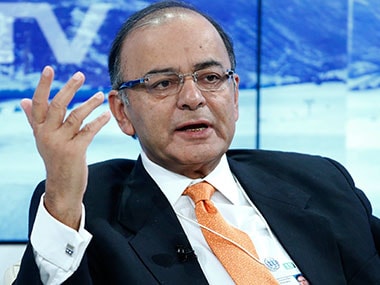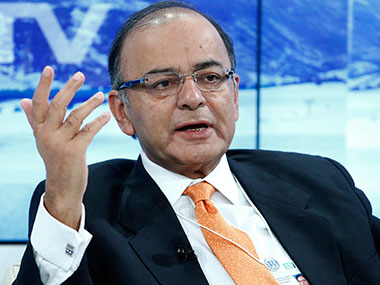Beyond the euphoria of India emerging as the fastest growing major economy in the world, beating China, is the not-so-pleasant question the Narendra Modi government has so far conveniently avoided. Who would take up the responsibility to repair the country’s weak banks? The International Monetary Fund (IMF), in its bi-annual global financial stability report, has clearly illustrated the magnitude of the problem. The fund has warned that close to 37 percent of Indian bank’s total debt is at risk — the highest level among the emerging market economies. The buffer with Indian banks to absorb losses in the event of possible crisis is 7.9 percent of their total assets — the worst among most emerging economies—with only Russia having a weaker number — 7.8 percent, the IMF report shows. The preparedness of a the banking system, in terms of capital, to face crisis situation is critical since banks are the backbone of any economy. This is particularly true for India, where banks continue to remain the primary source of funds for industries in the absence of a strong corporate bond market. Even the government relies heavily on banks to fund the credit sensitive sectors such as agriculture and small and medium firms. The state of the banks here is critical with about 12 percent of the bank loans under stress. [caption id=“attachment_2198888” align=“alignleft” width=“380”]  Jaitley should act before the problems spin out of control[/caption] Adding to the woes, there are clearly no sign of bad loan scenario being contained in the near future, especially on account of the recent changes in the provisioning rules by the Reserve Bank of India (RBI), according to which restructured loans, beginning 1 April 2015 will attract a 15 percent provisioning, equal to that of bad loans. Until now, banks used to conveniently push many bad loan cases to restructured loan cell, to avoid showing them as non-performing assets (NPAs). Such loan accounts will have to be treated at par with bad loans from now on. Already, bad loans of Indian banks have escalated to close to Rs 3 lakh crore, or close to 5 percent of the total bank loans. The share of state-run banks in this is over 90 percent of the total. The government is the majority owner in these banks. IMF has pinpointed the source of this part — companies with constrained balance sheets and poor repayment ability — can aggravate the bad loan problem. “A significant share of debt in Argentina, Brazil, China, India, Nigeria and Turkey is owed by firms with relatively constrained repayment capacity in terms of interest coverage ratios,” the report said. Corporate earnings have remained under pressure for quite sometime and any revival in industry performance can happen only if investments picks up in fund starved sectors — mainly infrastructure and manufacturing activities. So far, despite the rosy picture that is conveyed by the new measurement of GDP, there are no strong signs of investment activity picking up in a major way, nor any new projects are happening. Expert assessments substantiate the weak state of corporations. According to rating agency Crisil, Indian industries’ revenue growth is expected to fall to 2.5 percent on a year-on-year basis in the fourth quarter ending March, compared with a growth of 5.4 percent registered in the third quarter. Weak corporate performance means companies are less prepared to meat their repayment obligations. Hence, the NPA burden on bank balance sheets are likely to stay at elevated levels, posing risks especially state-run lenders. In fact, the RBI has acknowledged the worsening of the risk scenario in the banking sector in March, when it allowed banks to use 50 percent of the capital buffer held by them to make NPA provisions. Theoretically, the counter cyclical capital buffer is released only in scenarios of extreme stress. What IMF warning transpires is that Indian banks are not in a position to withstand loss-scenarios. The fund has grouped India among countries with banking systems with low loss-absorption capacity. “Loss-absorbing buffers appear particularly low in Chile, Hungary, India and Russia (between 5 per cent to 10 per cent of risk-weighted assets) and deterioration in loan quality could threaten capital levels,” IMF said. Furthermore, in India, Russia and Turkey loss-absorbing buffers have deteriorated quite substantially in recent years,” IMF said. As Firstpost has noted before, finance minister Arun Jaitely has only deepened the mess in the banking sector by denying capital to weaker banks, pushing them into a crisis. The government wants state-run banks to raise money from the market, which isn’t a feasible solution in the present scenario. Jaitely allocated only Rs 7,000 crore in fiscal year 2013-14 out of the total Rs 11,200 crore promised infusion. In the 2015-16 too, the government has announced capital infusion of Rs 8,000 crore, almost half of the sector’s requirement. The IMF’s warning should act as an eye-opener to Jaitley, before the problems spin out of control.
Finance minister Arun Jaitely has only deepened the mess in the banking sector by denying capital to weaker banks
Advertisement
End of Article


)

)
)
)
)
)
)
)
)



